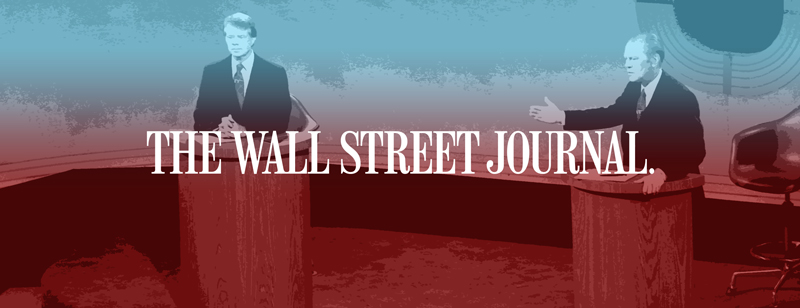We Need Better Presidential Debates
Oxford-style would tell us more than the current uninformative and stilted face-offs.
Originally published on the Wall Street Journal on Feb. 21, 2016 6:09 p.m. ET
http://www.wsj.com/articles/we-need-better-presidential-debates-1456096141
By ROBERT ROSENKRANZ and JOHN DONVAN
Prime-time presidential debates were a brilliant innovation of the 1960s, meant to inform voters and let them see the candidates in action. Their format, however, is due for an update.
Since the 1970s, when Jimmy Carter debated Gerald Ford, the setup has been the same: a structured interrogation. Moderators barrage the candidates with unpredictable questions, often designed to catch them in a trap. The contender has two minutes to respond, and then his opponent is given 60 to 90 seconds for rebuttals. They deliver memorized talking points, offer cherry-picked data, and evade anything uncomfortable. Moments of embarrassment don’t last long; a new topic comes along in minutes.
These debates tell voters almost nothing that can’t be gathered from 30-second campaign ads. There is no time for depth, no payoff for nuance, no serious discussion of policy. It isn’t surprising that the average percentage of the voting-age population tuning in has dropped steadily to 25% in 2012, from more than 58% when debates began in 1960. Even so, more than 60 million Americans in 2012 watched debates, giving them substantial influence.
For the 2016 general election, the nonprofit that oversees the format, the Commission on Presidential Debates, ought to adopt Oxford-style debate, a proven format that would better clarify the candidates’ differences. Here’s how it would work: A sharply framed resolution—for instance, “bigger government won’t solve our problems”—is devised for one side to support and the other to oppose.
The Democrat and Republican each start with a seven-minute opening statement. Then the contenders address and rebut the best arguments their opponent has made. The moderator’s role is simple, but vital: to ensure that the candidates actually debate each other—that they respect the process, respond to points made, refute or concede as necessary, and honor time limits.
Yes, that means the moderator can cut in, but to preserve the integrity of the debate, not to ask trick questions. The debate ends with two-minute closing arguments, a final opportunity to sway the audience.
Before and after the event, viewers are encouraged to vote for or against the proposition. The public, not pundits, will declare the winner. That gives a compelling and dramatic arc to the program. It is a battle of wit and persuasion, a test of intelligence and judgment, and it will leave the audience both informed and fascinated.
Oxford-style debate would force the candidates to respond to intense questions, marshal relevant facts, and expose weaknesses in their opponents’ arguments. Memorized talking points could not be disguised as answers. This format would quickly reveal how well the candidates think on their feet, how deeply they know the subject, how well they understand the trade-offs, and how persuasive they are without teleprompters.
We know it works. One of us is chairman, and the other moderator, for Intelligence Squared U.S., a regular debate program. Since 2006 we have mounted some 117 debates, often to sold-out theaters in New York, Boston and Chicago. We have explored nearly every topic discussed on the presidential campaign trail, including income inequality, business regulation, immigration, guns, taxes and health care. We’ve tackled questions regarding Russia, China, the Middle East and America’s role in the world. On average, 46% of attendees change their minds during our debates.
We propose a miniseries of hourlong debates between the Democratic and Republican nominees, each on a single resolution crafted to expose their fundamental differences.
Some examples: Does the U.S. intervene abroad too often? Has the Environmental Protection Agency gone overboard? Should a path to citizenship be granted to illegal immigrants? All of these issues will illuminate competing visions of the American dream. Presumably, anyone running for president will be able to answer them with the confidence that comes from deep conviction and a lifetime spent developing his or her own political philosophy.
By showing voters who the candidates are, how they think, and what they can teach us about difficult policy choices, these debates will foster the informed electorate essential for a thriving democracy. We need a format that is more Lincoln-Douglas, less reality TV.
Mr. Rosenkranz is the founder and chairman of the debate series Intelligence Squared U.S., where Mr. Donvan, an ABC News correspondent, is the moderator.




